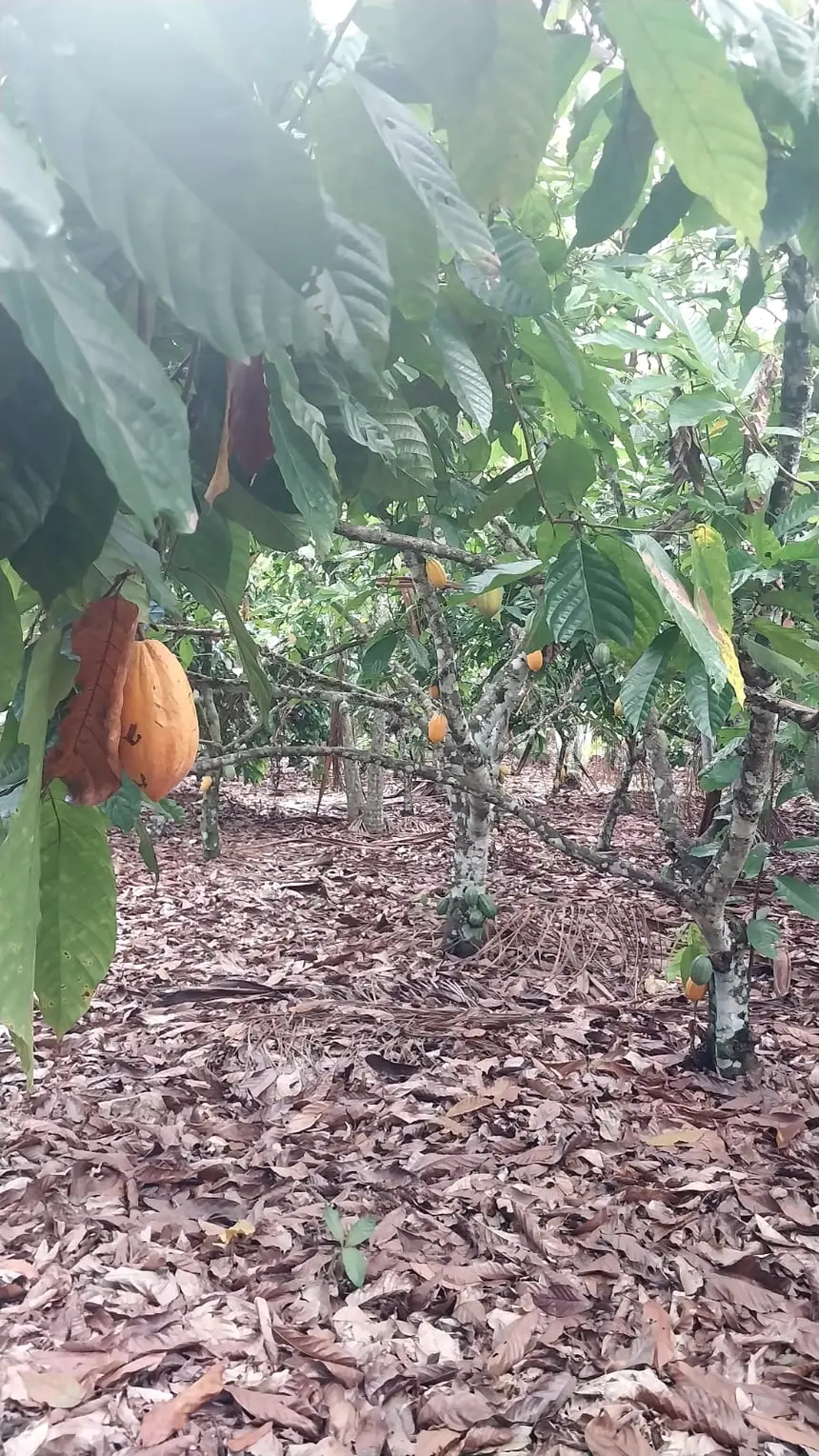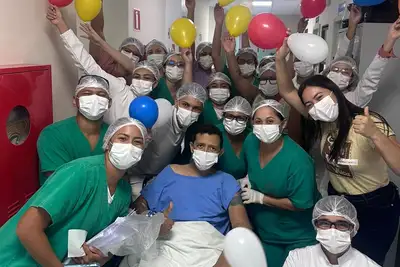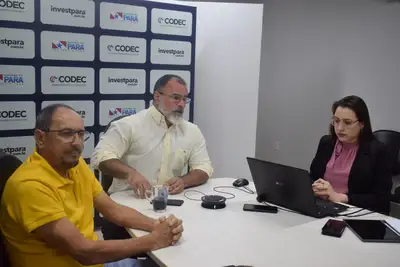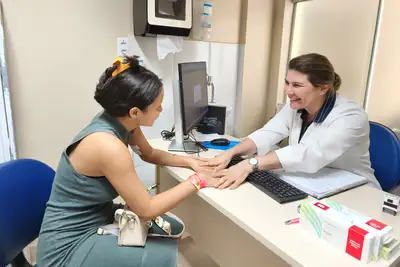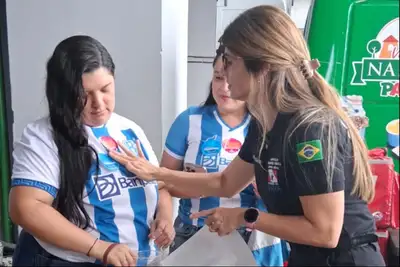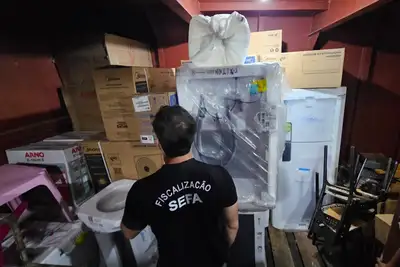Representatives from Sedap and an American multinational meet to discuss future partnerships focused on the cocoa sector
The meeting took place at the headquarters of the secretariat under the coordination of the head of the department, Giovanni Queiroz. The company's team is fulfilling an agenda in Belém with representatives of the State Government
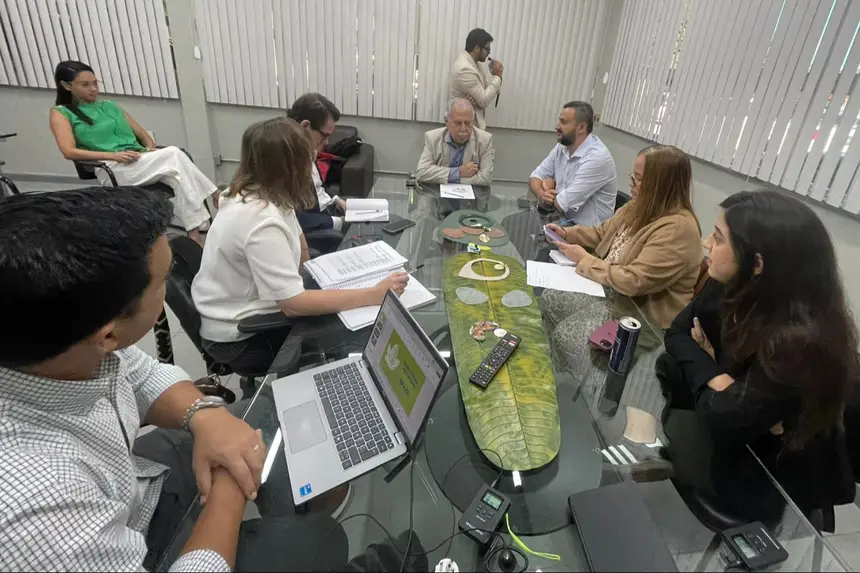
The search for partnerships focused on the cocoa sector was among the topics discussed in the meeting held this Wednesday (9) between representatives of Mars, a multinational in the food sector, and the team from the Secretariat of Agricultural Development and Fisheries (Sedap). The company is one of the largest buyers of cocoa in the world and is interested in Amazonian cocoa. In order to gather local information about the government policies adopted for the sector, members of the corporation are in the State to fulfill an agenda with representatives of the state government.
The meeting between the private company and representatives of Sedap was coordinated by the head of the department, Giovanni Queiroz, who was accompanied by the technical team of the secretariat. The manager detailed to the visitors the benefits already derived from programs and actions adopted by the State Government for the recovery of deforested areas.
An example, as the secretary detailed, is the Sustainable Territories Program (PTS), launched by the Helder Barbalho government. The program aims to promote sustainable development and forest restoration in regions of the State, especially those already suffering from deforestation.
“The State Government supports and provides incentives for enterprises that come to meet us, that share the same line adopted through sustainable practices. It is a stimulus for production, and here we have state policy to encourage small producers to work through agroforestry systems,” explained the secretary.
The secretary also clarified the purpose of the Pará Cocoa Support Fund (Funcacau), which, among other benefits, finances the production of hybrid seeds.
“We produce 12 million seeds and distribute them to our producers. Here we produce beans that have already been awarded nationally and internationally,” detailed the secretary.
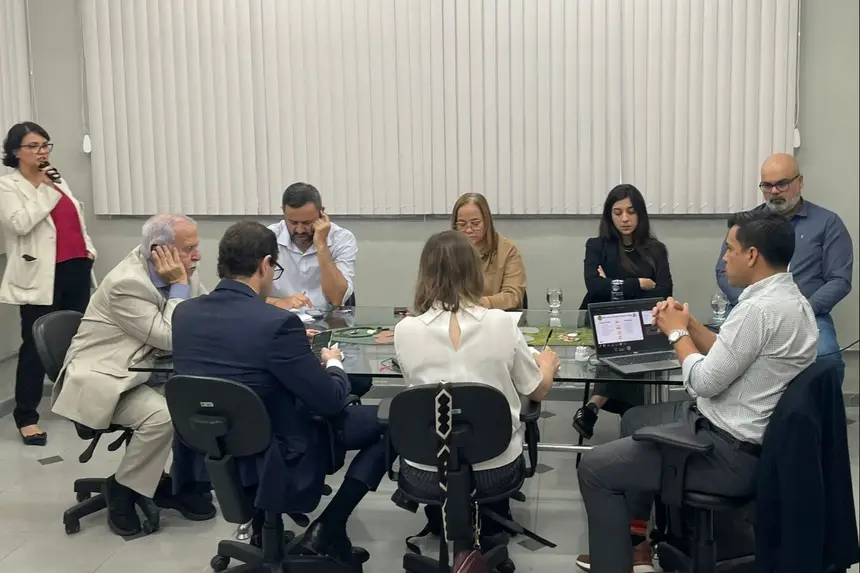
Expansion - Although known in the market for its manufactured chocolates, the company has diversified operations in other areas such as pet care, processed foods, and Snickers (snack foods, in free translation).
In addition to discussing production, Mars members emphasized their commitment to sustainability and cocoa quality. Present at the meeting were representatives Oliver Vasquez, Cocoa Strategy Director, Louisa Cox, Senior Director, and Luiza Santos, Corporate Affairs Coordinator.
The Strategy Director presented, during the meeting, the actions developed by the company in Brazil. Mars, as he explained, has the Mars Cocoa Science Center (MCCS) in the Barro Preto region, in southern Bahia, where it conducts research for genetic improvement and sustainable cocoa cultivation. It also has a unit in Ecuador.
“The goal is to obtain a fruit of high agronomic quality and unique flavor through cultivation techniques and genetic improvement of plants. We developed the Plasma Core concept. Brazil is our priority at the moment, and by 2030 we want to have a 'Mars' plant. We develop technologies to assist in cocoa cultivation and want to enable farmers to improve their efficiency and have better opportunities,” he said. He emphasized that the company believes it can form a partnership with Pará, especially due to the actions practiced in the State, which align with the company's thinking. “To understand the cocoa chain, we need to understand and value the farmer, in how to do aligned work.”
Mars is an American company with over 100 years of history and has been present in Brazil since 1978. Headquartered in McLean, Virginia, the multinational has a global revenue of $40 billion, derived from its four business segments: Petcare, Wrigley (chocolates and candies), Food and Research, and currently employs about 130,000 people in over 80 countries. In Brazil, it employs about 2,300 people in its facilities in São Paulo, the Northeast, and Paraná.


